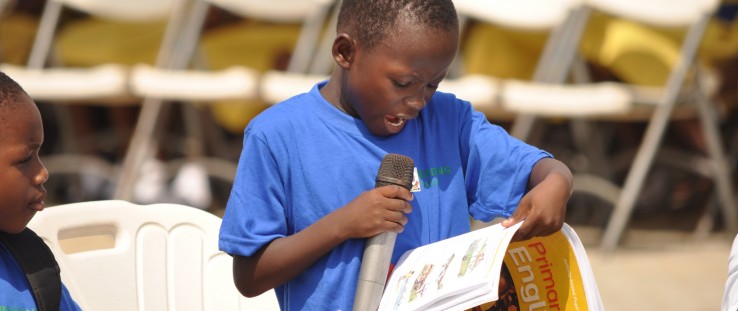 A child reads to the audience during Ghana’s reading festival in Cape Coast.
Daniel Abban
A child reads to the audience during Ghana’s reading festival in Cape Coast.
Daniel Abban
 A child reads to the audience during Ghana’s reading festival in Cape Coast.
Daniel Abban
A child reads to the audience during Ghana’s reading festival in Cape Coast.
Daniel Abban
Speeches Shim
Scores of festivals take place in Ghana each year. They are colorful affairs that celebrate everything from historical events to farming tools with drums and dance. But recently, thousands of Ghanaians around the country were galvanized by a new kind of festival—the reading festival.
These festivals captivated the national imagination, and were eagerly chronicled on television, radio, newspapers and social media. In many ways, they were much like other Ghanaian festivals, with ample drumming and dancing and local luminaries like traditional chiefs and queen mothers in attendance.
But unlike other festivals, the reading festivals included spoken word performances, poetry readings, film screenings, seminars about the best ways to teach children to read, storytelling sessions and spelling bees held in Ghana’s national languages and English.
Interspersed around each reading festival’s grounds were reading pavilions and roving library buses containing children’s books to stimulate imaginations and get pupils excited about reading. These books will soon be delivered to bookshelves in primary schools, kindergarten classrooms and libraries in every district of the country.
“I will not forget what we are doing today, I will always read my books,” said Mottey Bless, a pupil at Bame Evangelical Presbyterian Primary School, while he browsed through books at the Volta region reading festival.
More than 5,000 people attended the reading festivals, which took place in all 10 regions of Ghana in November and December 2015 and were organized through the USAID Partnership for Education: Learning. The five-year partnership between the Government of Ghana and USAID supports the government’s goal to turn 80 percent of children in the early grades of primary school into readers.
This partnership could not be more needed. A 2013 reading assessment administered throughout the country showed that only 2 percent of Ghanaian primary school pupils could read at grade level with fluency and comprehension. It was a call to action for education stakeholders throughout the country to get children reading.
The Government of Ghana is now working closely with USAID to launch the Ghana Reading Action Plan, review its educational policies and dramatically increase the number of children in the early grades who can read.
The reading festivals may be the public face of the partnership, but the effort tackles the issues from several angles behind the scenes. It consists of a suite of activities targeting teacher training, pupil assessment, management, monitoring and evaluation systems, and other factors that contribute to improved literacy.
The activities include training 51,000 teachers in reading instruction, strengthening government education systems at the local and national levels, supporting special needs education, and engaging parents and communities. The overall aim is to improve the reading skills of 2.8 million Ghanaian primary school pupils.
The reading festivals are all about introducing more books to schools. Moreover, they aim to foster a culture of reading by inspiring students, teachers, parents and local and national leaders to prioritize reading and literacy. The Government of Ghana plans to make the festivals an annual event.
“The reading festivals are designed to mobilize communities and advocate for the importance of reading,” said Adama Jehanfo, senior education program management specialist at USAID’s mission in Ghana. “We also want to show pupils and communities how much fun reading can be.”
According to Jehanfo, the festivals are playing a crucial role in addressing some of the main factors that contribute to the low child literacy rates in Ghana.
These factors are many. A lot of schools lack even the most basic text books, and more than a quarter of primary and kindergarten school teachers lack training. Even those who have been trained have often not been trained to teach reading. But perhaps most importantly, most parts of Ghana lack a culture of reading, and only about a quarter of primary school children are read to at home on a regular basis.
If the Partnership for Education is successful in addressing these underlying causes through the festivals and other initiatives, the dividends could be enormous. Adults who read are more likely to earn more money and be socially and politically engaged. These benefits directly impact the next generation: A child born to a mother who can read is 50 times more likely to live past the age of 5 than one born to an illiterate mother.
There is reason to be optimistic. The first round of festivals led a number of prominent community members to pledge their support. Chief Osabarima Ansah Sasraku II of Mamfe village in Ghana’s Eastern region said, “This is a laudable idea which needs the support of all and sundry. I will encourage people to assist children, especially those in the early grades, to read, since this forms the foundation of their future, and Ghana will ultimately benefit from a literate society.”
Eastern Regional Director of Education Rosetta Addison-Sackey said communities were already paying attention to the importance of literacy. “The community now appreciates what is done in the classroom because the classroom has been brought to them,” she said.
Now that the festivals are over, teachers are eagerly awaiting the influx of diverse new reading materials to inspire their pupils. But no one is more excited than the children.
Gbordzi Xoese Mawuli, a primary school pupil who attended the Volta region reading festival said, “I am happy today. We can learn how to read and become great people in the future.”
With more than 4 million books from the festivals now being distributed to more than 28,000 schools throughout Ghana, his dream is on its way to coming true.

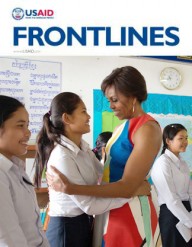

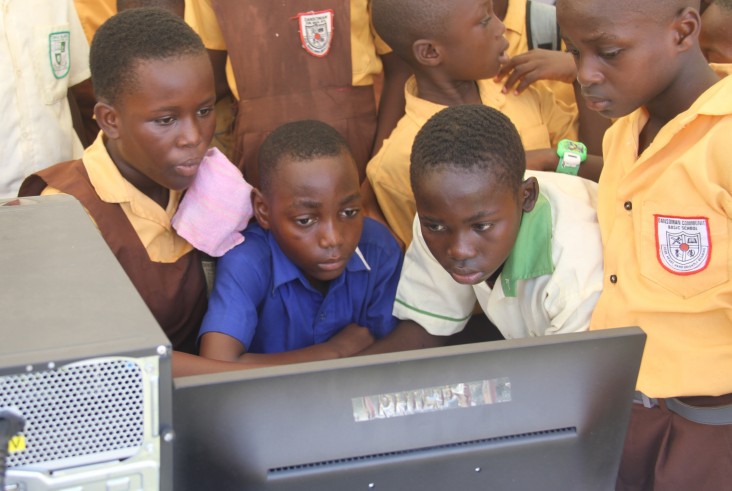
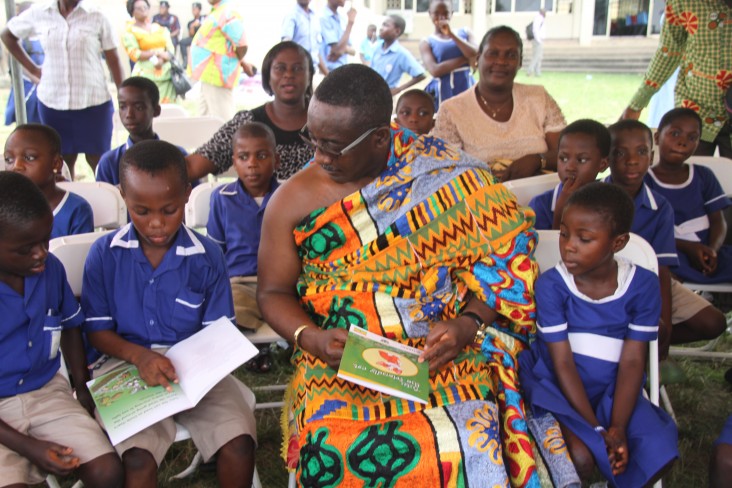
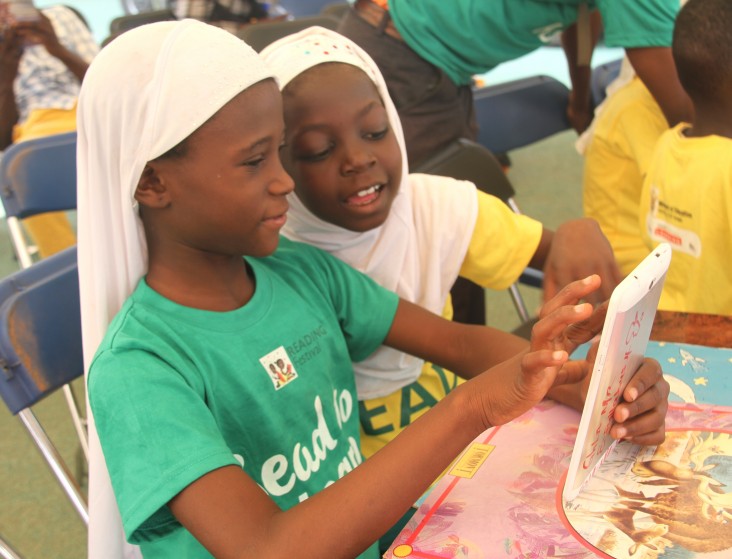
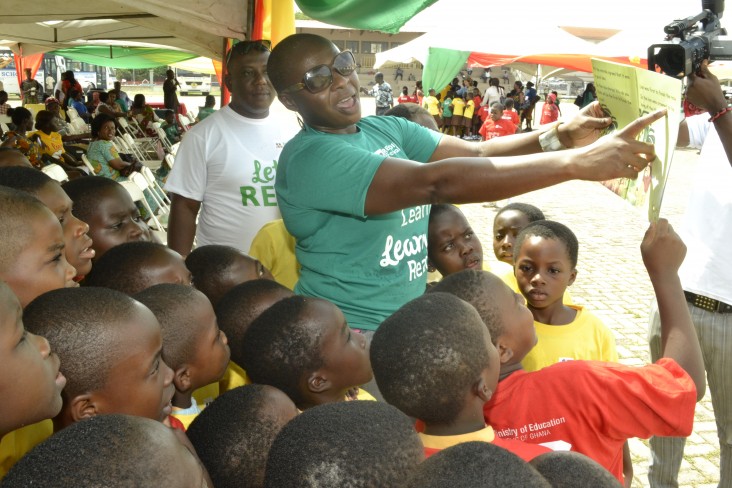
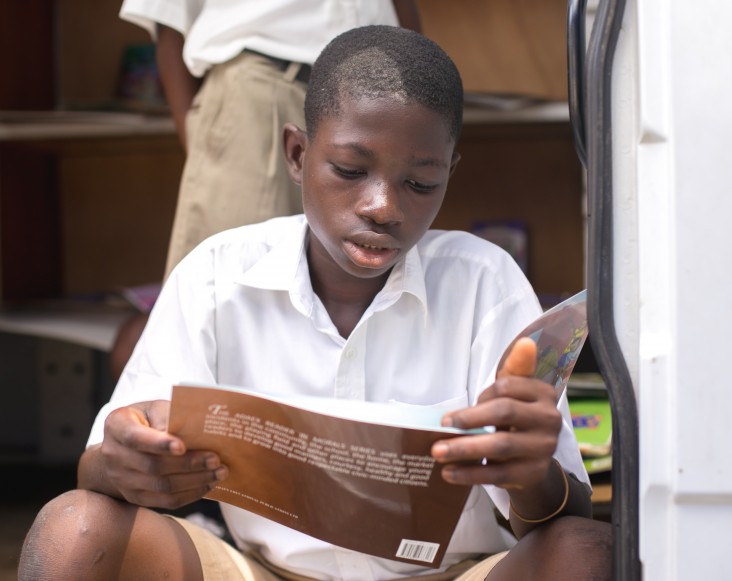
Comment
Make a general inquiry or suggest an improvement.